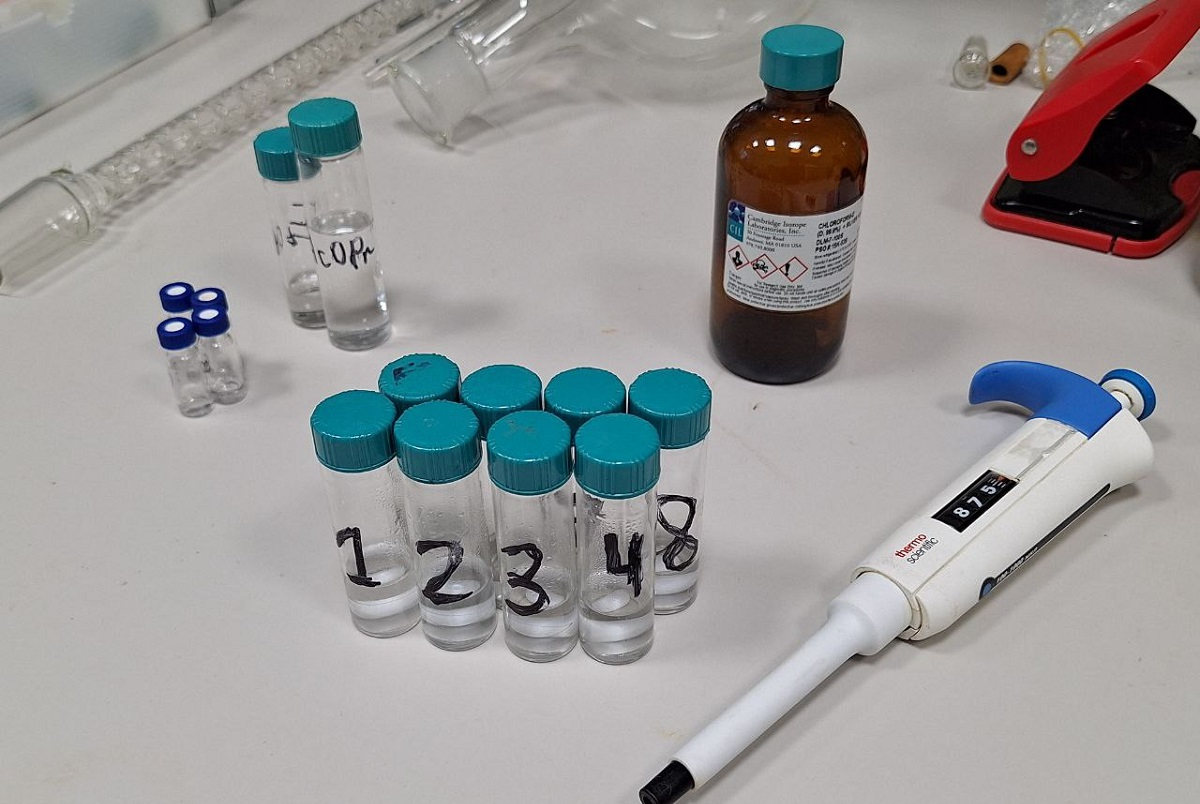Chemists from St Petersburg University develop an efficient method for purifying biodiesel from glycerol
Chemists from St Petersburg University have developed an efficient method for purifying biodiesel from glycerol using deep eutectic solvents based on choline chloride and urea. Experiments have shown that the developed method is more effective than those currently available.

Biodiesel is an environmentally friendly fuel derived from plant sources (e.g., rapeseed, soya) or animal fats through chemical processes. It is used in the engines of cars, tractors, and specialised equipment, as well as in agriculture.
The findings of the research supported by a grant from the Russian Science Foundation are published in the International Journal of Molecular Sciences.
The production of this fuel produces glycerol in the blend, which must be removed as it can cause engine blockage and build-up around the injector valve heads. Additionally, purification of biodiesel is necessary to meet global standards for the production and use of the fuel and to extend engine life.
The main methods currently used to purify green fuels are electrolysis, crystallisation, and filtration columns. Electrolysis involves the transfer of ions from the treated liquid through ion-exchange membranes under the action of an external electric field. Crystallisation allows the separation of glycerol using a solvent. Filtration uses a special filter to separate the main fuel from water and soap particles produced during the manufacturing process.
All these methods are resource-intensive, so the scientists from St Petersburg University have developed a new, more efficient and cost-effective purification method using environmentally friendly deep eutectic solvents based on choline chloride and glycerol, as well as choline chloride and urea.
These substances are characterised by low toxicity, non-flammability, low volatility, and rapid biodegradability. They are also easy to recycle, making them in high demand in various industries, from agriculture to power industry.
Maria Toikka, Associate Professor in the Department of Chemical Thermodynamics and Kinetics of St Petersburg University
According to the author of the development, deep eutectic solvents are now regarded as a new type of environmentally friendly solvents. They are a promising alternative to volatile organic compounds and ionic liquids for optimising extraction and separation processes. The production process of such solvents is simple and cost-effective. It involves the mixing and heating of components. In most cases, no additional purification of the substances is required, and the purity of the final product depends solely on the quality of the starting materials and does not deteriorate during production.
At the same time, St Petersburg University scientists Alexander Smirnov, Petr Kuzmenko, Artemii Samarov, and Maria Toikka have developed a purification scheme demonstrating that these solvents can serve as an efficient and safe means of biodiesel production.
The research, supported by a grant from the Russian Science Foundation, was carried out using the equipment of the Magnetic Resonance Research Centre of the St Peterburg University Research Park.
St Petersburg University has been among the leading recipients of grants from the Russian Science Foundation in recent years. In 2022 and 2023, St Petersburg University was the leader in the number of grants from the Russian Science Foundation: in 2022, St Petersburg University researchers received 112 grants, which is 5.5% of the total number of winning projects and the largest number of grants for one organisation. In 2023, the University maintained its leadership in this contest of the Russian Science Foundation: scholars from St Petersburg University received 70 grants, which is 5% of the total number of winning projects. Additionally, 41 research projects at St Petersburg University were supported by the Russian Science Foundation at the end of 2024.
The results of the research will help develop technologies that reduce the harmful effects of chemicals on the environment and decrease overall energy consumption.
The University’s chemists determined the efficiency of glycerol extraction from biodiesel samples containing different types of fatty acid methyl esters. The results of the research demonstrated greater efficiency compared to current methods.
St Petersburg University, the oldest university in Russia, was founded on 28 January (8 February) 1724. This is the day when Peter the Great issued a decree establishing the University and the Russian Academy of Sciences. Today, St Petersburg University is an internationally recognised centre for education, research and culture. In 2024, St Petersburg University celebrated its 300th anniversary.
The plan of events during the celebration of the anniversary of the University was approved at the meeting of the Organising Committee for the celebration of St Petersburg University’s 300th anniversary. The meeting was chaired by Dmitry Chernyshenko, Deputy Prime Minister of the Russian Federation. Among the events are: the naming of a minor planet in honour of St Petersburg University; the issuance of bank cards with a special design; and the branding of the aircraft of the Rossiya Airlines to name just a few. To mark the 300th anniversary of St Petersburg University, a postage stamp depicting the Twelve Collegia building and the monument to Count Sergey Uvarov was issued. Also, a Soyuz rocket bearing the symbols of the University was launched from the Baikonur Cosmodrome.
By the decision of the Governor of St Petersburg Alexander Beglov, 2024 was a year of the 300th anniversary of St Petersburg University in St Petersburg. On the day of the University’s 300th anniversary torches were lit on the Rostral Columns on the Spit of Vasilyevsky Island. St Petersburg University flags were raised on the Palace Bridge. The city public transport was decorated with the University’s symbols. During St Petersburg’s City Day celebrations in May 2024, St Petersburg University acted as a participating venue. Additionally, the University launched a website dedicated to the anniversary. The website contains information about outstanding University staff, students, and alumni; scientific achievements; and details of events held as part of the celebration of the 300th anniversary of the University.

